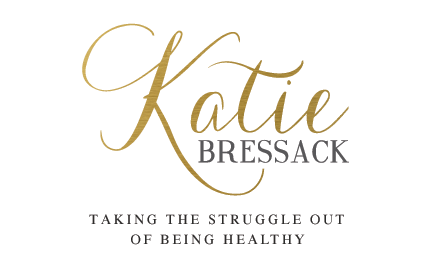Hormone Testing 101
Everything You Need To Know About Hormone Testing
To test or not to test? Today I will be sharing which hormones to test, when to test them, and what foods can support your hormones best in our hormone testing 101 blog post. I’m a big believer in treating your symptoms, aka the way you “feel”, with food and lifestyle shifts. Since what we eat has a huge affect on the way that we feel, I often see my clients reduce and eliminate mood swings, heavy or irregular periods, PMS, insomnia and cravings just by making some lifestyle adjustments.
What’s on your plate can make a tremendous impact on the way that you feel every day. However, I’m also a fan of data! If you haven’t been feeling like yourself for a while now, it’s also important to get more detailed information on what might be going on with your hormones through hormone testing.
The challenge is that lab results can come back as in range and normal, yet you still don’t feel balanced in your body. I have experienced this with my own health, where the numbers were “in range” for a while, yet I was still feeling exhausted. It took me a while to figure out that I have hypothyroidism, where my body doesn’t produce enough thyroid hormones. I made changes to my diet and lifestyle, but I also wanted to dig deeper and did lots of testing.
I love data and how it helps you recognize changes over time. I’ve been tracking and charting my period for years including the color of my blood, energy levels, cravings, sleep patterns, movement and stress. I gather so much information about my body this way, and I encourage all of my clients and you to do the same. I use both a Period Tracker App and Stasha Washburn’s Charting Mandela. It’s unbelievable how much information we can collect just by paying attention and tuning into our body more. I encourage you to not only get some hormone testing done, but to do some charting at home. This way you can walk into your doctor’s appointment with numbers and your very own health history.
So What Test Is Best For You?
I ran into this often, where my doctors only wanted to test a few hormones. I had to insist, loudly, that they run a full hormone panel. It was at this time that I also found a naturopathic doctor who ran LOTS of tests for me. If you feel like your doctor isn’t running the right amount of tests for you you can check out a holistic, functional medicine doctor or naturopath.
There is a difference between blood, saliva and urine testing that I’m going to break down for you so you can request the exact test that you think would benefit you the most.
Some hormones test better via saliva and urine than blood. Cortisol is best tested a few times a day to get a more accurate response via saliva. The adrenals are best tested via blood work as well as estrogen, progesterone, and testosterone, however you don’t always get a full picture especially if you have PCOS. It depends on what is going on with your cycle and body. Before you do any testing have a conversation with your doctor as to which phase of your cycle they want additional information about. They will ideally test on Day 3 or Day 21, if you have a 28 day cycle. If your cycle is longer or shorter just subtract 7 days from your expected period to get the day 21 test day.
So even though your hormones are changing day to day, and year to year it can be very helpful to get a full panel done so you have lots of data on your body. This way if anything changes you will be the first to know and have all this incredible data you’ve been gathering from charting and hormone tests over the years.
Hormone Testing 101
What To Test
Next time you are at your doctor’s office you can request blood work, most of the time this is covered by insurance. But check ahead to make sure you won’t be charged a huge amount, it’s not fun to get a large bill in the mail! Have your doctor run a full hormone panel, not just one or two hormones so we can get a full picture. Hormones to test are thyroid (full thyroid panel – not just TSH), estrogen, progesterone, cortisol, testosterone, DHEA-S, Leptin, Fasting Insulin, Vitamin D (which is a hormone). Depending on what hormonal stage you are in FSH and LH can also be helpful. There are so many hormones to test, so check with your doctor about your symptoms to see if they’d like any additional testing.
When To Test
It’s all about timing, since our hormones are changing day to day, it’s important to check them at the right time. If you are checking your progesterone, check on day 21 if you have a 28 day cycle, or 7 days minus your expected period. If you are curious about your estrogen to progesterone ratio you’d want to check on day 3 of your cycle. Be sure to confirm with your doctor first about what they’d like to get a better picture of with your hormones. You can also do a full month of testing with the Dutch test where you can do saliva and dried urine to get a very complete picture of your daily hormones.
Which Hormone Test
Blood Testing aka Serum
Traditionally doctors do most hormone testing via blood. These tests, serum, are ideal for testing hormones such as FSH, LH, prolactin, fasting insulin, and thyroid hormones including Reverse T3, as well as thyroid antibodies. This test is not an accurate reflection of the bioavailable hormone (the amount of hormone that is active in organs and tissues). In addition, the results of the serum hormone tests are often inconsistent, especially if the hormone value indicated is in the low-normal range.
Saliva
It has been shown that saliva testing is the most accurate measurement of the body’s availability of the hormones Cortisol, DHEA, Estrogen, Progesterone, and Testosterone. Saliva testing is much more specific and correctly identifies the level of hormones at the cellular level, in contrast to a serum (blood) test, which measures the level of hormones circulating in the bloodstream which isn’t the most accurate. If you are taking hormones this can alter the results of saliva testing so this might not be the best test for you.
Dutch Test & Urine
Many holistic practitioners are recommending the DUTCH test, which uses both dried urine and saliva to get a complete picture. Progesterone, androgen, estrogen, and cortisol and their metabolites are shown in depth. You can get it through your doctor, lots of functional medicine and naturopaths are using this test now. It’s also available on their site and you can use code KBS100 to get $100 off this test.
Birth Control Note
If you have been on birth control, most holistic doctors recommend waiting three cycles before getting hormone testing done so you can get more accurate results.
What To Do After You Get Results
Review Them With Your Doctor
Make an appointment and have them go over the results with you line by line so you have a complete understanding of your health. If you have questions, ask them and get their suggested next steps.
Whether you decide to test or not, there are plenty of diet and lifestyle improvements that we can make will have a huge impact on your hormonal health, at the cellular level. If you’d like to find a time to speak you can make an appointment via my online calendar.
I’d love to hear your thoughts!
- Was this post helpful for you? Or, do you have any additional questions? Comment below and let me know!
- Share with your friends, forward this along or post on social. You can also join me on Instagram and in my private FB group
- Want a deeper look into your hormones? Take my quiz to see what foods might be helpful to add into your diet
- Sign up for my newsletter full of women’s health tips and get your FREE guide, the five steps to take today to help balance your hormones
Medical Disclaimer
Information in this post and on this web site is provided for informational purposes only. The information is a result of practice experience and research by the author. This information is not intended as a substitute for the advice provided by your physician or other healthcare professional or any information contained on or in any product label or packaging. Do not use the information on this web site for diagnosing or treating a health problem or disease, or prescribing medication or other treatment. Information and statements regarding dietary supplements have not been evaluated by the Food and Drug Administration and are not intended to diagnose, treat, cure, or prevent any disease. Always speak with your physician or other healthcare professional before taking any medication or nutritional, herbal or homeopathic supplement, or using any treatment for a health problem.


.png)
.png)
.png)
What happens if you no longer have a cycle? At what time is best to run a hormonal test? ty
Hi, have you gone through menopause or are you experiencing amenorrhea?